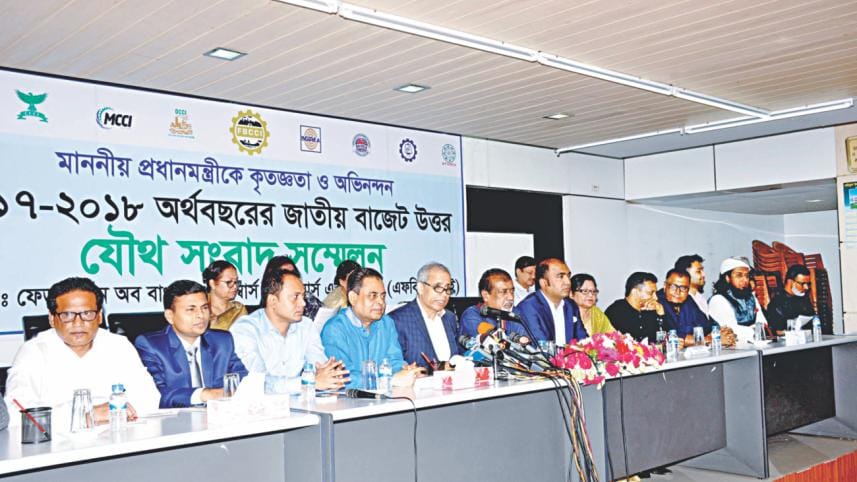Businesses hail VAT law holdup

The business community yesterday thanked the government for deferring the implementation of the uniform 15 percent VAT for two years and cutting excise duties on bank deposits.
“The government has taken a realistic decision by continuing the existing VAT laws and postponing the new one,” said Shafiul Islam Mohiuddin, president of the Federation of Bangladesh Chambers of Commerce and Industry, at a press briefing.
The move, which took into consideration the worries of the business community and the general public, would go on to enhance trust between the public and private sectors.
A congenial environment to execute the new VAT law is yet to be established, so the postponement would give the National Board of Revenue and the business community sufficient time to prepare, he said.
The trade bodies have always welcomed the positive sides of the new VAT law, said Mohiuddin, who was reading out a written statement at the briefing held at the FBCCI's headquarters in Dhaka.
“We hope the government would look into the issues that need to be amended before their implementation in future.”
The country's apex trade body reiterated its call for an impact assessment of the new VAT law by an independent body and bring in the legal amendments accordingly.
The FBCCI welcomed the cut in excise duty, saying it would benefit small savers.
Similarly, the decision to reduce import duty and withdraw regulatory duty on rice to keep the price stable warrants praise, he said.
The tax at source should be cut to help exporters compete with their global peers. The government has kept 1 percent tax at source against the exporters' demand of 0.5 percent.
Since the exporting sectors failed to meet their targets, the government should extend its assistance through special incentive or tax rebate, the FBCCI president said.
The garment sector, the country's main export earner, is going through a tough time, and some 1,200 factories closed in the last two years, said Md Siddiqur Rahman, president of Bangladesh Garment Manufacturers and Exporters Association.
Subsequently, he urged the government to withdraw the tax at source for several years.
“This 1 percent tax at source will have a negative impact on the sector as the shipment of apparel items has been facing the setbacks of a volatile global economy,” he added.
In response to a query, Mohiuddin said some dishonest businessmen have raised the prices of goods when the budget for fiscal 2017-18 was proposed in parliament on June 1.
“We are against these unscrupulous businesspeople. If the government takes action against them, we will help.”
Asked if the business community would accept the implementation of the VAT law in two years' time, Mohiuddin said the most effective way to execute a law is to hold discussions with all stakeholders and address their observations. “This is called accountability.”The exercise can take as long as ten years in some cases, he said, citing India as an example.
But the government's move to hold back the implementation of the VAT and Supplementary Duty Act 2012 until 2020 is a step in the right direction, he added.
The Awami League government is business friendly, said AKM Salim Osman, president of Bangladesh Knitwear Manufacturers and Exporters Association. “That's why it has postponed the new VAT law.”
He said, if the economy remains in a good shape it is not only good for the government but also for the business community.
Md Muntakim Ashraf, vice-president of the FBCCI, and Liakat Ali Bhuiyan, president of the Real Estate & Housing Association of Bangladesh, were also present.



 For all latest news, follow The Daily Star's Google News channel.
For all latest news, follow The Daily Star's Google News channel.
Comments